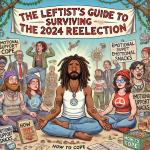If you’ve ever mentioned Joseph Campbell to an academic folklorist, you’ve seen how we look when we cringe. In this post, we’ll explain why!

Here’s where I get a bit ranty, but luckily I’ve got some colleagues backing me up. Quotes in this post were excerpted with permission from a Facebook post that involved a lot of cranky folklorists venting about Campbell (because yes, even folklorists are on Facebook, despite the fact that many of us are Luddites). I’ve got two main points and some related thoughts to share.
I should also note that Alan Dundes addressed this issue in our field in his 2004 Invited Presidential Plenary Address to the American Folklore Society (now published in the Journal of American Folklore 2005, Vol. 118, No. 470, pp. 385-408). If there’s interest, I can summarize the main points of the essay in a separate post.
First, Campbell doesn’t know his scholarly history, and repeats mistakes we should’ve been done making over a century ago, namely, displaying ethnocentric bias and ignoring context.
Academic folklore studies has roots in the Romantic movement of the 19th century; however, in the intervening years, we’ve moved away from the universalizing, essentializing, and ethnocentric rhetoric of that era. So you can see why we might be disturbed to hear that writers in this century are returning to that awfully problematic lens. If you want to know more about that problematic stuff, I address is in my keynote on the body in folklore.
My colleague Sara Cleto writes:
Campbell’s approach tends to direct the reader back to themselves and their own culture. By saying, “hey, it’s really just the same story over and over, we are all basically the same, and it’s great!” he ends up erasing the differences, and it has a flattening effect on the stories. This means that readers see what they already can see, and they understand stories from different times and places as reflections of their own experiences. Since it is often a white/ Western audience doing this, the net result is that the stories written from other perspectives are decontextualized from their culture and repackaged as something familiar, losing a lot of information along the way. By saying “all these stories are the same,” we lose what stories mean in different contexts and, especially, what they can mean to people that come from cultures that are not our own.
In other words, we believe that context is super important: both the immediate situational context in which folklore is performed, and the overall cultural context (region, time period).
Taking folklore out of its original (oh gods I just used that word, I’m sorry) cultural context means missing out on important details and intertextual links. And to some degree, that’s just what happens in instances of cultural contact and borrowing. Like, we get it; people are always seeing things they like in other people’s culture, and appreciating/appropriating them, and things get weird from there. Fine… to some degree that’s human nature. But from scholars? We expect careful attention to context.
Second, Campbell’s use of half-baked Jungian concepts is just bad scholarship. As my colleague Paul Cowdell writes:
It’s all too easy for folklorists like myself simply to become enraged at Campbell – the bad methodology Jeana indicated is one thing, but his (misre)presentation of folklore and of what folklorists do is so popular as to be something else entirely. It misleads people as to what we actually do and why. As a result it’s easy for splenetic types like myself simply to become apoplectic with rage without dealing much with his huge popularity.
So it’s worth quoting a brilliant and generous folklorist who did acknowledge Campbell’s popularity. Analysing the structure of tale plots, Barre Toelken used the tale ‘The Sun’s Myth’ to illustrate that:
‘The same plot, clearly, does not always mean the same thing; without the implied meanings and shared connotations supplied by cultural context, we may very well have a coherent text whose meanings are totally misapprehended. This is one of several points missed by those who believe “archetypes” are universal in their meaning: it led Joseph Campbell to argue in an otherwise brilliant book that there is a universal hero myth – an assertion that can be maintained only by suppressing thousands of stories like “The Sun’s Myth” in which culture is threatened and destroyed, not stabilized and renewed, by the egotistical actions of a powerful male seeker.’
Later, Toelken returned to Campbell’s ‘monomyth’ theories (a myth presented ‘as if the narrative dramatizes a single universal meaning, or else all stories of a particular sort (like those about heroes) are regarded as fragments of a single puzzle’). Toelken pointed out that Campbell, basing himself on early Jungian theories of ‘archetypes’:
‘tried to demonstrate that many recurrent themes and plots were part of the human psychological inheritance and were therefore susceptible to cross-cultural interpretation. The problem is, of course, that irrespective of the universality of archetypal images, different cultures organize and interpret (and thus understand) the symbols quite differently. Campbell could construct a monomyth of the hero only by citing those stories which fit his preconceived mold, and leaving out equally valid stories … which did not fit the pattern’.
(These are from Toelken’s brilliant The Dynamics of Folklore, rev’d edn, pp. 257 and 413 respectively).
More succinctly, one might say that in order to demonstrate universality of narratives, Campbell manages to relegate the people actually telling those narratives to the level of inconvenient intrusion, to be ignored wherever they don’t fit the schema. (Which is my rather less magnanimous take, obviously!)
Archetypes, of course, are culturally specific. Jung claimed that every culture did/should have a Christ child archetype, for instance, which I find repulsively ethnocentric. Not all cultures have the same stories or even genres, and that’s okay.
In fact, I’d wager that stories – and stories about stories – become all the more interesting when they serve to illustrate the disconnect between cultures.
This LitHub essay by Marie Mutsuki Mockett, Our Fairy Tales Ourselves: Storytelling from East to West, circles around these same dilemmas. Mockett relates reading The Writer’s Journey by Christopher Vogler, which explicitly incorporates Campbell’s Hero’s Journey. This was for Mockett, on some level, unsatisfying, despite how widespread it’s become (as the template for Star Wars, etc.). In contrast, Mockett found another approach:
About a decade ago, I stumbled across another book—a good complement to The Writer’s Journey. The Japanese Psyche: Major Motifs in the Fairy Tales of Japan, by Hayao Kawai, examines Japanese fairy tales, and how so many of their ideas and themes feel at once familiar, but strange to western audiences. Kawai is often referred to as the first Japanese psychologist who trained as a Jungian analyst. But when Kawai returned to Japan from Switzerland, he realized that some of the “rules” of interpreting mythology and dreams didn’t exactly conform to Japanese culture. What was more, stories didn’t adhere to expected western concepts of structure.
Because that’s the thing: culture structures narrative. And in turn, narrative structures cultural expectations around story, genre, emotional engagement, and pleasure. All these things are interrelated, and they all matter for how people form their worldview, which in turn impacts how we perceive and act toward others.
On the plus side, reading Campbell can be like a gateway drug for people who don’t know what narrative theory or folklore studies are. We hope that they persevere long enough to get to the good (a.k.a. accurate, scholarly) stuff. What we don’t want is for people to skim the surface and stop there, and assume that reading Campbell is as good as an academic folklore education. Read him if you like, but don’t assume that you’ll learn anything about culture that you couldn’t also come up with on your own by blending your own observations with a sprinkling of analytic psychology. (again – this is a legit way to interact with texts on a personal level; if it’s useful for you in your own spiritual practice or psychological journey, great! just don’t foist it on others or dress it up in scholarly drag)
I’ll wrap up by noting that in that long-ago Facebook thread, some colleagues and I joked about raising Campbell’s ghost through a seance so we could have a boxing match. I feel particularly good about having Amy Hoff (folklorist/filmmaker) in my corner. Maybe that’d be one way we could popularize our cause and lay to rest faulty-but-somehow-popular assumptions about our field!














